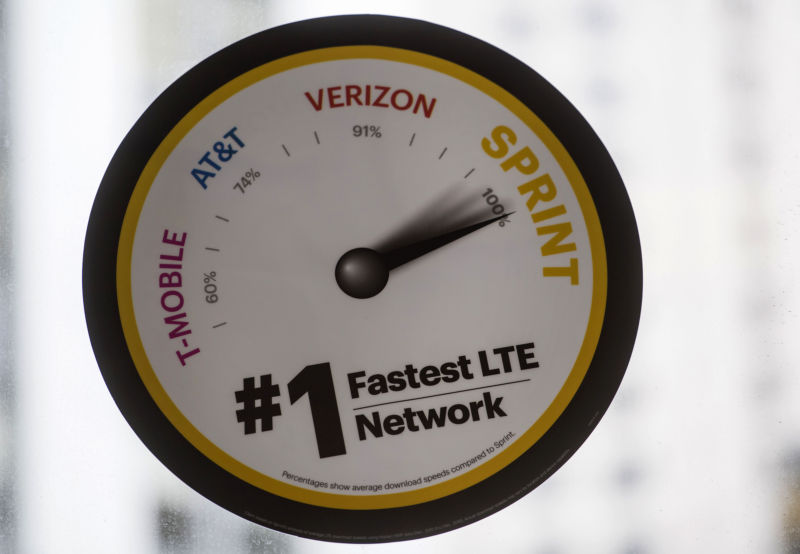
A patent-licensing entity that sued the five largest cell phone carriers has seen its biggest victory slip away.
Prism won a $30 million verdict against Sprint in 2015, when a jury found that Sprint violated US Patents No. 8,127,345 and 8,387,155, both of which describe methods of "managing access to protected computer resources." According to the complaint (PDF), filed in 2012, Sprint's Simply Everything Plan and Everything Data Plan were both methods of "controlling access to Sprint’s protected network resources" and thus infringed the patents.
Earlier this month, though, US District Judge Lyle Strom ruled (PDF) that Prism won't be able to collect on its verdict. Prism used the same patents to take on T-Mobile, which defeated the patents and prevented Prism from collecting the Sprint verdict as well.Prism had already taken on AT&T, which settled in the middle of trial. When it went to trial against Sprint, Prism's lawyers asked for a damage award along the same lines as the AT&T settlement—and the jury gave them almost exactly what they wanted with the $30 million verdict, according to Carter Philips, a lawyer representing Sprint.
While Sprint's case was on appeal, Prism went ahead with a 14-day jury trial against T-Mobile. That case turned out far worse for Prism. First, the jury found that T-Mobile didn't infringe the patents. Then, T-Mobile won an even bigger victory when it wiped out the patents entirely on appeal. The US Court of Appeals for the Federal Circuit found that the patents were invalid under the Alice precedent because they were nothing more than a description of abstract ideas.
In his order, Strom found that the Federal Circuit order dealt with the same claims and that there was nothing special about the procedural standing of the Sprint case that wouldn't merit the same treatment.
"[T]he court finds no just reason why such a judgment ought to stand when the claims 'are predicated on a nullity' and unenforceable to the rest of the world," Strom wrote in his opinion.
Tale of two trials
Sprint lawyers were able to keep the case stayed while awaiting the outcome of the T-Mobile case, which was central to their victory, Sprint lawyer Carter Phillips explained in an interview with Ars. Sprint posted a bond for $32.2 million to cover the judgment.
Philips, who was hired after the jury verdict came in, said the original team representing Sprint made the unusual decision not to contest the validity of the patents at trial.
In the Sprint trial, Prism lawyers were able to "beat up sprint over the fact that AT&T had settled at a number that was pretty close to where the jury came out," said Phillips.
Prism doesn't practice the patents or have any business outside of patent licensing and litigation, and it continues to get more patents. The patent-licensing firm is a successor to Prism Resources, an operating company that existed until 2001. The founder of Prism, Richard Gregg, testified at the Sprint trial.The company will still be able to appeal the loss of its verdict, and Phillips said he's expecting that to happen, since it will let Prism move forward with the two other trials it still has lined up, which include an upcoming case against Verizon.
By asserting its patents against five distinct defendants, Prism put itself in a position where it had to run the proverbial table because a serious loss in any of the cases could gut its cases against the other companies. That's exactly what has happened in this case, and the patent-licensing company will likely have to be satisfied with its single settlement from AT&T.
reader comments
43